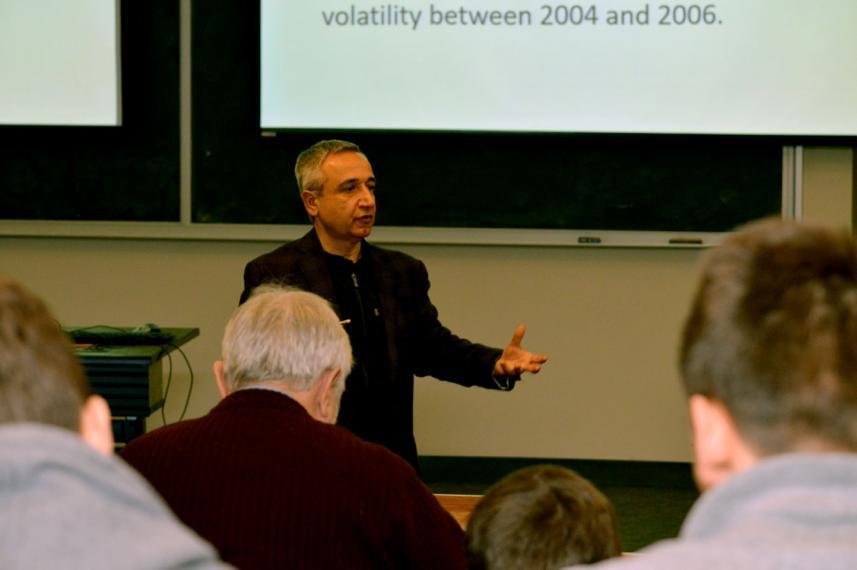Economics alumnus Ramazan Gençay returns to Guelph as distinguished visiting lecturer

It has been nearly 30 years since noted scholar Ramazan Gençay graduated from the University of Guelph with his MA in Economics. Over the course of his career, he has gone on to build an impressive repertoire of scientific publications and become a professor of economics at Simon Fraser University in British Columbia. On March 22, he returned to U of G to discuss his research among faculty and students.
Gençay is widely known for his contributions to high frequency trading research and for his work on a statistical method called 'wavelets' which allows economists to gain a more complete understanding of market activity by sampling prices at short to long planning horizons. These accomplishments have their earliest roots at U of G where he started his master’s degree in 1986 after coming to Canada from Turkey. His decision to attend Guelph was based on its international reputation and Canada’s standing as a welcoming nation.
“When I went to school in Turkey, there was a civil war and Canada always looked to be a very peaceful and inclusive place,” he said. “My professors knew Guelph as a good school. It was the most exciting option for me.”
During his master’s degree, he focused his thesis research on measuring the predictability of economic chaos in Italy, Japan, the United Kingdom and West Germany, under the supervision of professor Thanasis Stengos. The resulting paper was published in the European Economic Review. Following the completion of his master’s degree, Gençay pursued his PhD at the University of Houston where he used his previous research to shape his dissertation, work that remains quite visible to this day. In the years that followed, he traveled around the world presenting his research and publishing notable academic papers and books.
“Economics is interesting because there are two parts to it,” he said. “One is microeconomics, where we try to characterize individuals, and the other is macroeconomics, where we examine the interactions between individuals. What are the outcomes, what are the positives and negatives of those interactions?”
This theme of interaction is ever present throughout Gençay’s research and other aspects of his work. Specifically, he sees an inherent connection between his research ideas and sharing knowledge with his students, two cornerstones of his work that complement and strengthen each other. He discovered one of his recent paper topics while he was teaching a large group of undergraduate students.
“The direction does not go from research to teaching, it’s a loop,” he said. “You convey information to students and they respond with their own thoughts. Teaching leads to reflections that feed into research.”